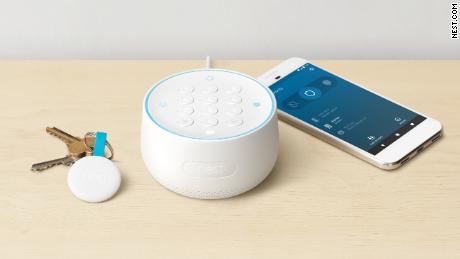New York (CNN Business)It appears no one realized Google's Nest Guard home security device has a built-in microphone.
In a blog post earlier this month, the company announced Google Assistant would roll out to Nest Guard so users can ask it for information like the weather or traffic. The blog post acknowledged the gadget has one microphone -- news that was not made clear to users.
Google previously did not disclose the microphone's existence in any of its product descriptions but said it wasn't a "secret."
"The on-device microphone was never intended to be a secret and should have been listed in the tech specs. That was an error on our part," a Google spokesperson told CNN Business on Wednesday in a statement.
The microphone isn't enabled by default and can only be activated when users turn on the option. A Google spokesperson said it included the microphone on the device so it could potentially offer users additional features, such as the ability to detect broken glass during a break in.
"Security systems often include microphones to provide features that rely on sound sensing," the spokesperson said.
Users shared their concerns over Google not being transparent about the microphone on social media. Business Insider was first to report the news.
The Electronic Frontier Foundation shared its reaction via a tweet: "No product should ever come with a secret microphone, regardless of whether or not it's enabled. That's just bad security design, @nest."
Last month, Google said a bug impacted some of its Nest indoor and outdoor cameras. The glitch caused the cameras to behave as if someone was accessing the live view mode -- turning on the green indicator light -- when they weren't. The issue has since been fixed.
The news comes at a time when users are becoming increasingly concerned about their privacy following a string of recent scandals and revelations about how tech companies collect and use data.
Google, which bought Nest for $3.2 billion in 2014, has come under scrutiny for how much information it collects about users.



















